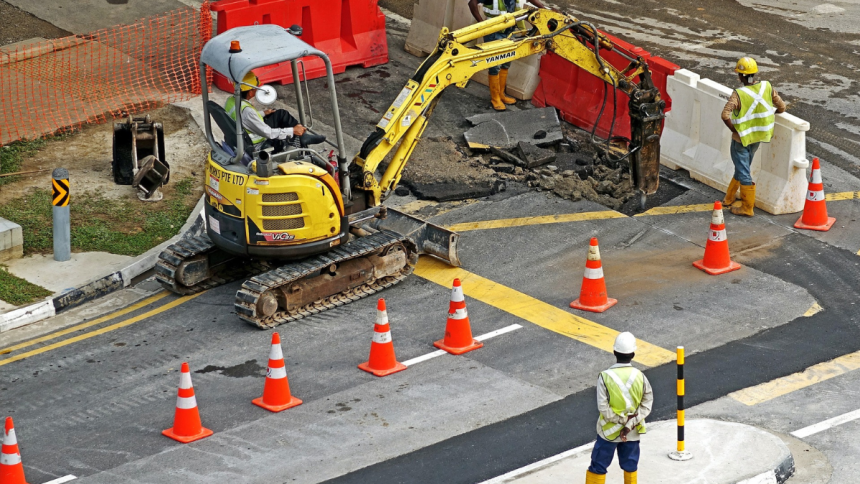Hiring the right sidewalk contractor in New York City is essential for ensuring compliance with city regulations and achieving durable repairs. Whether addressing violations from the Department of Transportation (DOT) or upgrading worn-out pavement, selecting a qualified professional prevents unnecessary expenses and legal issues. Understanding key credentials, DOT requirements, and warning signs of unreliable contractors helps homeowners and businesses make informed hiring decisions.
Verifying Credentials and Licensing
A licensed sidewalk contractor meets NYC requirements for performing concrete and paving work. Property owners should confirm that the contractor holds a valid Home Improvement Contractor (HIC) license issued by the NYC Department of Consumer and Worker Protection (DCWP). Checking the New York State business registry ensures the company is legally recognized.
Proper insurance coverage protects homeowners from liability in case of accidents or property damage during sidewalk repairs. Contractors should provide proof of general liability insurance and workers’ compensation coverage, ensuring financial protection for both parties.
Experience in sidewalk restoration matters when hiring a contractor. Professionals with years of expertise in DOT-compliant repairs understand permit processes, ADA accessibility standards, and best practices for durability. Reviewing a contractor’s portfolio of completed projects helps assess workmanship quality.
Understanding DOT Rules for Sidewalk Repairs
NYC sidewalk repairs must follow DOT regulations, ensuring safe and structurally sound pavement. Contractors must comply with guidelines regarding concrete thickness, slope requirements for drainage, and curb height adjustments.
Sidewalk permits are mandatory for most repair work. Homeowners or contractors must obtain a DOT permit before starting construction, preventing fines for unauthorized modifications. The DOT also inspects completed work to verify compliance.
Sidewalk violations issued by the DOT require prompt attention. When hiring a contractor, property owners should ensure the professional has experience handling violation corrections. Improper repairs may not be accepted by city inspectors, leading to additional costs.
Red Flags to Avoid When Hiring a Contractor
Homeowners should be cautious of sidewalk contractors who lack transparency in pricing. Estimates should include detailed cost breakdowns, covering labor, materials, and permits. Vague or fluctuating quotes may indicate hidden fees or unreliable service.
Unlicensed contractors pose significant risks, as they may not follow city regulations. Hiring an unlicensed professional can result in rejected repairs, additional fines, or low-quality work requiring future corrections.
Contractors demanding large upfront payments before beginning work should raise concerns. While deposits are common, excessive prepayments without signed agreements may signal financial instability or potential scams.
Poor communication and lack of responsiveness indicate potential project delays. Contractors should provide clear timelines, regular updates, and documented agreements to ensure accountability throughout the repair process.
Final Thoughts
Hiring the right sidewalk contractor in NYC requires thorough research, verification of credentials, and awareness of DOT regulations. Selecting a licensed professional with experience in compliance ensures durable, high-quality repairs while preventing violations. Avoiding red flags such as vague pricing, unlicensed operations, and poor communication helps homeowners secure reliable service. Following structured hiring practices guarantees smooth and legally approved sidewalk restoration that enhances property value and pedestrian safety. For expert construction and renovation services tailored to your needs, visit Zicklincontracting.com.
Lynn Martelli is an editor at Readability. She received her MFA in Creative Writing from Antioch University and has worked as an editor for over 10 years. Lynn has edited a wide variety of books, including fiction, non-fiction, memoirs, and more. In her free time, Lynn enjoys reading, writing, and spending time with her family and friends.















